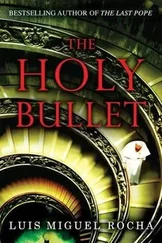Judith Rock - The Eloquence of Blood
Здесь есть возможность читать онлайн «Judith Rock - The Eloquence of Blood» весь текст электронной книги совершенно бесплатно (целиком полную версию без сокращений). В некоторых случаях можно слушать аудио, скачать через торрент в формате fb2 и присутствует краткое содержание. Жанр: Исторический детектив, на английском языке. Описание произведения, (предисловие) а так же отзывы посетителей доступны на портале библиотеки ЛибКат.
- Название:The Eloquence of Blood
- Автор:
- Жанр:
- Год:неизвестен
- ISBN:нет данных
- Рейтинг книги:5 / 5. Голосов: 1
-
Избранное:Добавить в избранное
- Отзывы:
-
Ваша оценка:
- 100
- 1
- 2
- 3
- 4
- 5
The Eloquence of Blood: краткое содержание, описание и аннотация
Предлагаем к чтению аннотацию, описание, краткое содержание или предисловие (зависит от того, что написал сам автор книги «The Eloquence of Blood»). Если вы не нашли необходимую информацию о книге — напишите в комментариях, мы постараемся отыскать её.
The Eloquence of Blood — читать онлайн бесплатно полную книгу (весь текст) целиком
Ниже представлен текст книги, разбитый по страницам. Система сохранения места последней прочитанной страницы, позволяет с удобством читать онлайн бесплатно книгу «The Eloquence of Blood», без необходимости каждый раз заново искать на чём Вы остановились. Поставьте закладку, и сможете в любой момент перейти на страницу, на которой закончили чтение.
Интервал:
Закладка:
“Maitre?” Armand Beauclaire, a pink, round-faced sixteen, with light brown hair as thick as thatch, was studying Charles. “Are you well?”
Charles looked up blankly. “What? Oh, yes, certainly!” He pulled himself together and tried not to hope that Montmorency would sprain an ankle. Or both ankles.
The other boys, though, were very good dancers. Several were good enough for strong solos, and together the six would make an impressive ensemble. He unfolded Charpentier’s list of dances, and the students gathered around him. When Charles reached the end of the list, he was nodding happily. This composer knew what he was about. Of course, Charles knew of Charpentier’s work for the noble Mlle de Guise and her household musicians, called The Guise Music. He had also heard one or two of the composer’s pieces for the Jesuit church of St. Louis and looked forward now to hearing Charpentier’s theatrical music.
He smiled at the boys. “Monsieur Charpentier has given us a fine list of dances and characters.” His gaze traveled around the small circle. “Who knows the story of our hero, Celse? He is Celsus in Latin, but we will call him Celse, since our musical tragedy lyrics are in French.”
The Italian boy, thirteen and in his first year in the senior rhetoric class, put up his hand. “He was Milanese, maitre. Like me.” Michele Bertamelli drew himself up, and his enormous black eyes glowed. “God made most of His saints in Italy.”
Beauclaire retorted flatly, “He was French.”
“One small moment, messieurs,” Charles said, interrupting Bertamelli’s protest. “Monsieur Bertamelli raises an interesting point. It is correct that many of our earliest saints are from the Italian cities. Why is that, do you suppose?”
“Because the Roman emperors killed so many Christians,” Walter Connor said impatiently, as though that were obvious. Which it should have been to boys who had studied Latin classics for four or five years.
“Habes. Yet Monsieur Beauclaire is right that Celse was originally from Gaul.”
Bertamelli’s small fierce face became a tragedy mask.
Charles Lennox offered uncertainly, “And his mother was Saint Perpetua?”
“Close. Saint Perpetua was the mother of Celse’s master, Saint Nazarius. The story goes like this. Nero was emperor-so it is said-when Nazarius was born. Saint Perpetua raised him as a Christian, though his father was a pagan. Nazarius gladly followed his mother’s way and grew to be very devout. When he began his preaching journeys to convert pagans, he went to Milan. But the Roman soldiers there beat him and threw him out of the city. He then went to Gaul, where a woman asked him to take Celse, her nine-year-old son, and give him a Christian upbringing. So the two companions went on together, the little boy helping the man and at the same time learning to be Christian. They made many converts, but in Trier, they angered the Roman officials and were condemned to be drowned in a lake. When they were thrown overboard, a great storm came up and the terrified boatmen rescued them, realizing that God was angry at this attempt to harm them. They were set free and returned to Milan-where the Romans beheaded them. Many years later, Saint Ambrose found their bodies buried in a garden outside Milan. He also found a vial of blood beside the body of Saint Nazarius, and the blood was still bright red and liquid. So their holy remains were kept in honor and treated with the reverence they had earned in life.”
Montmorency yawned widely, a very rude act in company, which Charles ignored for the deliberate provocation it was. Beauclaire put up his hand.
“Yes, Monsieur Beauclaire?”
“Maitre, why was the blood already in a vial? Who put it there if no one had dug Saint Nazarius up before Saint Ambrose?”
“A very good question. Some tellings of the story say only that Saint Nazarius was bleeding when they dug him up, and that his blood was still liquid and bright red.”
Beauclaire was shaking his head. “My brother told me dead bodies don’t bleed. He saw a body dissected and it didn’t bleed.”
“No, no,” Bertamelli cried, shaking a finger at Beauclaire. “They bleed! If they were murdered and the guilty one touches them, they bleed and that is how you know the murderer!”
“People used to believe that,” Charles said. “But now-”
“No, no, I saw it, maitre, I saw it myself, my uncle was murdered by his cousin and when his cousin turned the body over, it bled on his hands and made them as red as the devil’s tongue to accuse him!”
Several of the boys were round-eyed with interest, but Beauclaire and Connor looked at each other and shrugged. Montmorency just looked confused.
To avoid another international dispute, Charles said firmly, “There are many unexplained things in God’s world. We must go on with our purpose here. Our dancing space today will be from the wall to where I am standing. Mark it out, please.”
The boys took off their hats and began placing them to indicate a rectangle, deeper than it was wide. Montmorency haughtily handed his hat to little Bertamelli, who bowed ironically and added his own hat and Montmorency’s to the rectangle.
Charles, watching, nodded thoughtfully. “Now, the first dance is a sarabande for Saint Perpetua.” He let his gaze drift over the waiting dancers and come to rest on Montmorency. “Monsieur Montmorency, let me see your demi-coupe, two pas marches, and a balance.”
Montmorency stared in horror. “Saint Perpetua? Me?”
“Why not?”
“In a gown?”
“But of course.”
The rest of the group was convulsed with silent laughter.
“I want to be a Roman soldier.”
Charles raised his eyebrows.
“Please,” Montmorency added grudgingly.
Charles waited.
“Please, maitre.”
Having extracted the required courtesy due a teacher, Charles graciously inclined his head. “Perhaps you are somewhat large for Saint Perpetua.” He turned to the light and wiry Walter Connor. “Monsieur Connor, could you manage Saint Perpetua?”
Connor grinned all over his face. “With pleasure, maitre. As long as she doesn’t wear a clock.” Charles had saved Connor from having to dance in the summer ballet while wearing a three-foot chiming clock on his head.
“My thanks, Monsieur Connor,” Charles said, grinning back. “Show us your demi-coupe, two pas marches, and a balance.”
Connor took the female position for making a reverence, heels together, feet turned out, hands clasped palm up and palm down at his waist, bent both knees and straightened them. Then he stretched one leg back, the toe of his shoe on the floor, arranged his arms in the fourth position, and turned his head slightly toward the upraised arm. Charles drew his time-keeping stick from his cassock and set the tempo, beating a slow triple meter on the floor. Connor executed his steps and ended in an effortless balance on the ball of one foot.
“Excellent! You are our Saint Perpetua, Monsieur Connor.” Charles looked at his list and then at the remaining six boys. “Monsieur Beauclaire, let me see your pas de bourree, forward, backward, to both sides, and emboite with the heel beat. All at a slow tempo.”
Again he set the tempo, and Beauclaire went effortlessly and beautifully through his steps. He was perhaps the school’s best dancer, though he had bitter difficulty telling right from left.
“You are our Saint Nazarius,” Charles said, smiling at him.
Beauclaire bowed. “I will write to my mother, maitre, and tell her I have been made a saint,” he said piously, laughter dancing in his eyes. The other boys groaned.
“Now we need a Celse.” Charles would have liked to give the part to the quiet, anxious Charles Lennox, but Celse had to be small, and the English boy was as tall as Beauclaire. The Italian was the smallest and youngest of the group. Poised on his toes, Bertamelli was watching Charles with the eagerness of a fledgling hoping for a worm. Charles nodded at him. “Monsieur Bertamelli, show us all the hopping, jumping steps you know. I want to see how fast and light you are.”
Читать дальшеИнтервал:
Закладка:
Похожие книги на «The Eloquence of Blood»
Представляем Вашему вниманию похожие книги на «The Eloquence of Blood» списком для выбора. Мы отобрали схожую по названию и смыслу литературу в надежде предоставить читателям больше вариантов отыскать новые, интересные, ещё непрочитанные произведения.
Обсуждение, отзывы о книге «The Eloquence of Blood» и просто собственные мнения читателей. Оставьте ваши комментарии, напишите, что Вы думаете о произведении, его смысле или главных героях. Укажите что конкретно понравилось, а что нет, и почему Вы так считаете.












